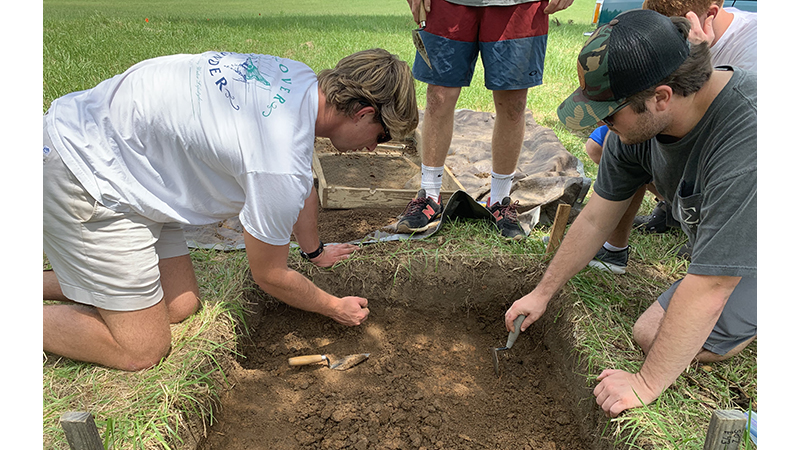Hampden-Sydney announced new Center for Public History
Published 12:41 pm Thursday, January 23, 2020

- Hampden-Sydney College students dig at an archaeological site, an example of one of the many projects students are able to take part in through the school’s new Center for Public History. (Photo courtesy of Hampton-Sydney College)
Hampden-Sydney College (H-SC) has announced the formation of a new Center for Public History, housed in the college’s innovative Pannill Center for Rhetoric and Communication, a H-SC press release highlighted.
Mainstream culture increasingly views history as both relevant and interesting, according to Caroline Emmons, Elliott Professor of History, assistant dean of the faculty and acting director of the new Center for Public History at Hampden-Sydney College.
Public history, defined by the National Council on Public History as “the many and diverse ways in which history is put to work in the world,” is likewise emerging as a prevalent area of study, inspired by increased community engagement with historical material, the release said.
Hampden-Sydney is a perfect fit for a study of public history, according to Emmons, given its location near Revolutionary War, Civil War and civil rights landmarks as well as its status as one of the oldest colleges in the U.S.
“History is a huge industry in Virginia,” Emmons said. “And the entire Hampden-Sydney campus is a kind of laboratory for that.”
With its focus specifically on oral history, historic preservation, museum studies, archaeology and archives and digitization, Hampden-Sydney’s Center for Public History merges the academic study of history with its practical application in the wider world, the release stated.
Officials noted that the broad nature of the field and the center’s areas of focus create ample opportunities for partnership across campus.
Public history students have already collaborated with an array of college entities, from the Atkinson Museum to the Department of Fine Arts, and from Bortz Library to the Office of Undergraduate Research. Projects have included archaeological excavation on historic Slate Hill plantation and a digital index of The Tiger newspaper.
With its office located in the new Pannill Center for Rhetoric and Communication, the center’s close proximity to the Office of Undergraduate Research and the rhetoric studio has established a natural working partnership. Students perform research under the Center for Public History and then communicate their findings with the help of the rhetoric studio. Public history is geared toward the general public, so students are learning to deploy rhetoric that is inclusive, based in research and of interest to a broad audience, the release said.
“History’s natural connection with rhetoric is increasingly obvious,” Emmons explained. “At the Center for Public History, we take our students’ existing love of history, combine it with history’s relevance to contemporary issues and our physical environment and then add the college’s emphasis on being able to express oneself effectively as well as its emphasis on citizenship. It’s the perfect fit.”





